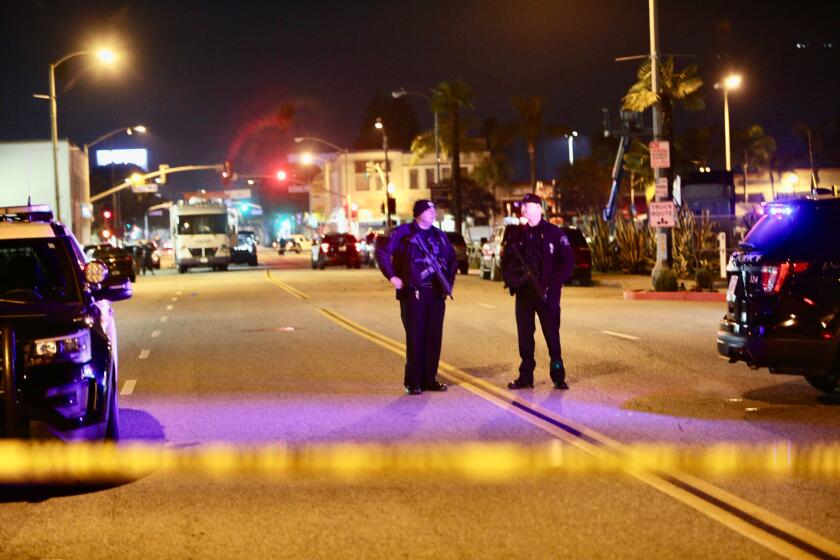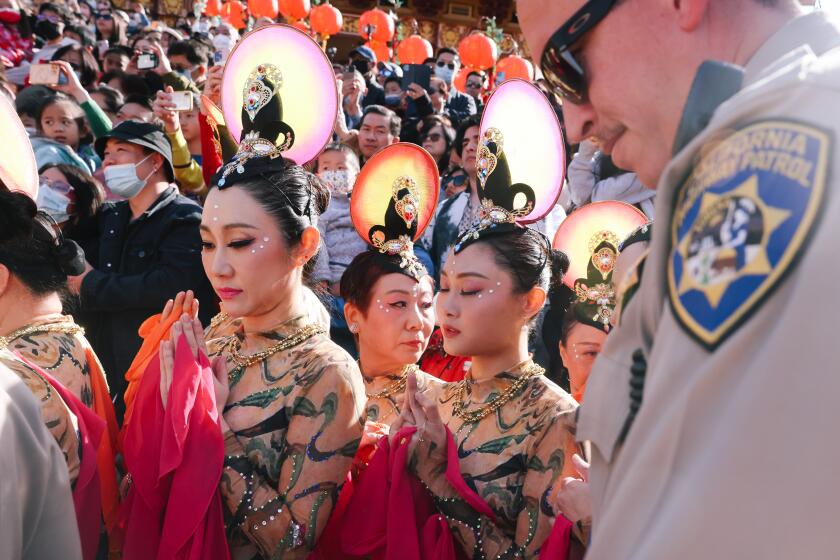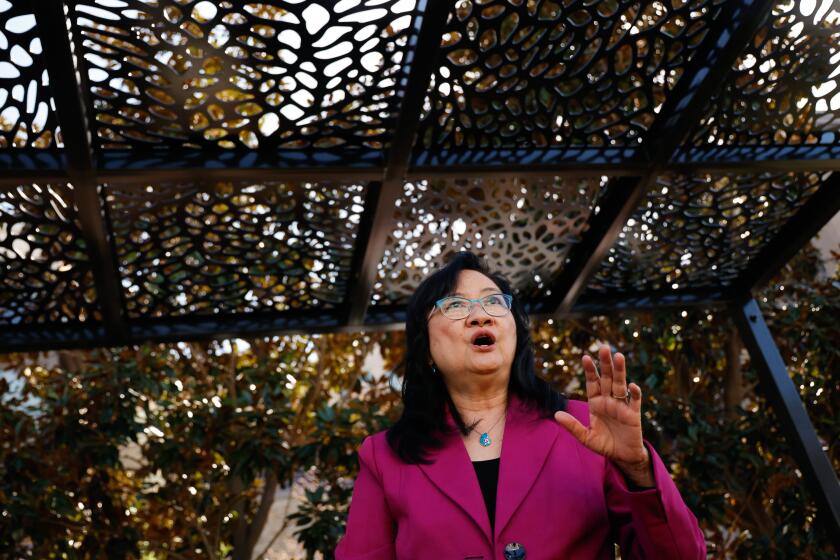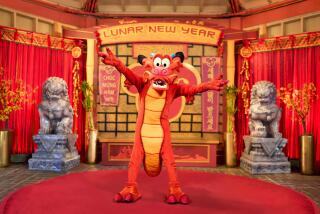For my Monterey Park family, the shooting shattered a sacred New Year taboo
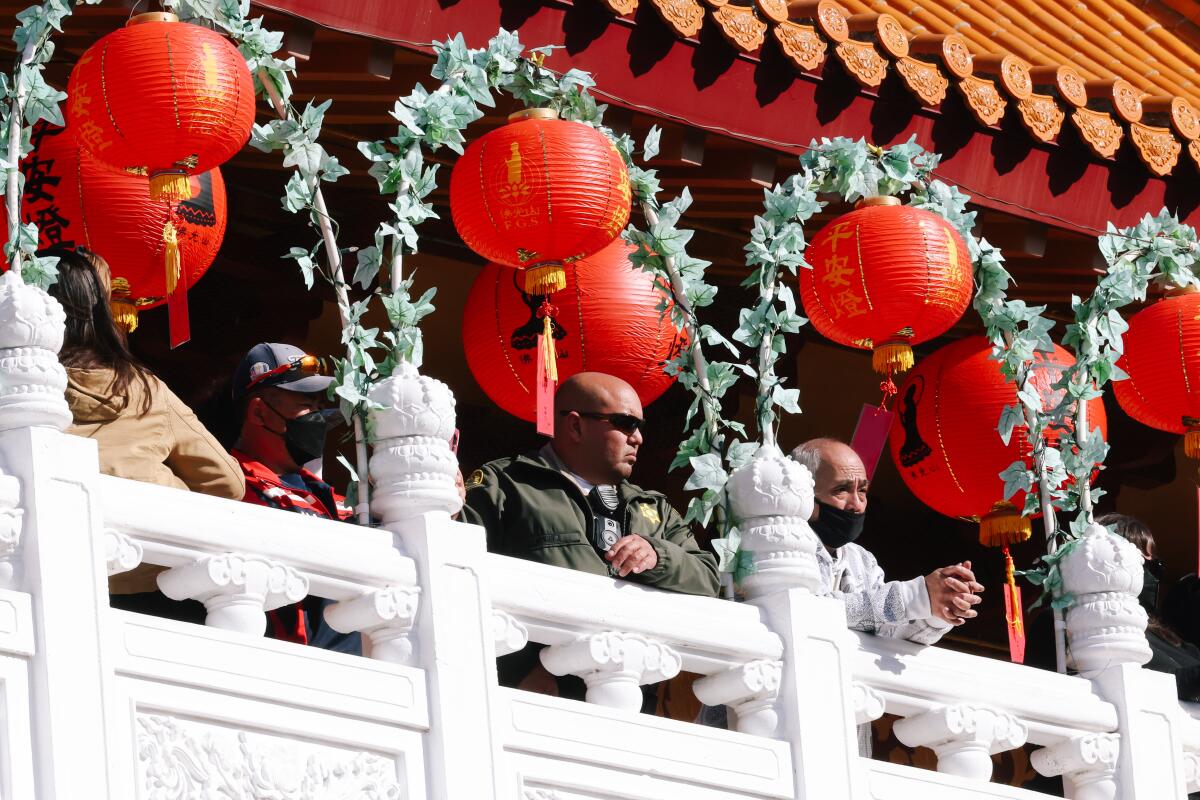
- Share via
I learned about the shooting in my beloved city the morning after it happened. On Sunday, my sister-in-law called to rearrange the location of our New Year’s lunch. But it was a puzzling conversation.
“I’m glad you are OK,” she started.
“What do you mean? Why wouldn’t I be OK?” I asked.
“About what happened last night,” she explained. Which to me wasn’t an explanation, but another mystery to solve.
“So I think we should find another place for lunch,” she continued. “How about the Guadalajara Grill?”
“Well, I love Mexican food, but, uh, are you sure? Isn’t today the first day of, uh, Chinese New Year?” I ventured, hoping not to offend, and trying to clear my morning brain fog. (I’d been pulling all-nighters to finish a new play.)
“You don’t know about it, do you?” she said.
“Know about what?”
Eleven people are dead after a man opened fire in a dance studio in Monterey Park. Police believe the shooter also targeted an Alhambra studio. Here’s what we know.
This is how I learned about the tragedy at the ballroom, which is located only about five minutes from my mother’s home in Monterey Park, a beautiful city where the traditions, languages and customs of my upbringing have made a permanent home. MPK is a gentle suburban melting pot with 13 parks, one domed observatory and a cascading waterfall. It’s heaven for both Asian foodies and devotees of colorful mismatching grandma street fashion. And it doesn’t deserve to be forever associated with mass murder.
So yes, I love the city where I grew up, and I love my sister-in-law speaking in riddles. What struck me about her careful and veiled conversation was the Herculean effort to adhere to one of two important tenets for welcoming in a Chinese New Year and ensuring a lucky 12 months to follow.
The first tenet is the reason my sister-in-law was being so cloak-and-dagger; she was trying to respect the taboo against spreading bad news. Words like “death,” “killing,” “murder” and “shooting” would be tantamount to beckoning bad juju into existence, a flagrant violation of a proper Lunar New Year mind-set.
To this end, a few days earlier, my mom had mandated a TV news blackout. She set this moratorium to hold back the surging tide of things wrong in the world — war, lies, malfeasance — coming into our home and mucking up our new year luck. Mom is not only a fanatical viewer of basketball but also of the news (CNN, MSNBC, late-night talk shows), so this blockade was neither a joke nor an easy thing to maintain. But we were doing it. My sister-in-law was merely respecting these wishes when she called me that horrible morning.
My brother Will and I always practiced this sort of mandatory joy at the start of the weeks-long annual celebration. At a young age, we are inculcated by our elders — those close to us as well as friends who became aunties, uncles and cousins by polite acclamation. Every red envelope given as a gift at the new year came with smiling recitations of beautiful sentences carrying heartfelt sentiments bestowing luck, prosperity and good health, with ardent hopes that all our hearts’ desires would be fulfilled in the coming year.
A mass shooting on Lunar New Year ruins the most important holiday of the year for many Asian Americans.
Even as toddlers, we were taught to say good words, think happy thoughts, maintain a positive attitude about the future — for ourselves and for everyone around us. Especially for my small family, because the New Year is about family. And since Will, my only brother, passed away five years ago.
Being at home with your family, eating bland ceremonial food and honoring our ancestors with lighted candles, bowls of white rice and Chinese whiskey, with each family member bowing three times before the aforementioned bland ceremonial food — that’s Chinese New Year.
Truth be told, while growing up I didn’t appreciate those ceremonies or the utterance of good words. I just wanted the red envelopes with their crisp new money. Not so much those magical words of well-wishes, spoken in my mother’s native Taishanese, rushing at me in a smiling torrent of lovely intentions in a language I barely speak — a dying language many of whose native speakers are now in their late-stage golden years. A language belonging to my grandparents and parents, the generations who sacrificed and tolerated more than I will ever know, who emigrated bravely, dreaming of a better life not for themselves but for their children.
And now, their American dream has collided with an American nightmare we tolerate for no good reason — one that at the dawn of the Year of the Rabbit has forced us to violate a deep taboo just to ensure our loved ones are safe.
The second important tenet of the Lunar New Year is the requirement to be home for the holiday. Far-flung children are supposed to dutifully fly home and be with the family. I’m much better at respecting this now since I was forced to be home for the last three years by the pandemic. Before the lockdown, I always chose to attend out-of-town rehearsals or enjoy snowfall on the East Coast on the new year, celebrating with friends or even strangers, never realizing why my mother fretted so deeply — and loudly — about the risk I unknowingly incurred to my own good luck.
In fact, this past Monday, to my mother’s great consternation, I was supposed to be in Boston, attending a first rehearsal for my latest play. But what happened at the ballroom is a harsh reminder that this, too, is a rule to respect and cherish. Since I moved back to Los Angeles, being home in Monterey Park, taking care of mom, I’ve reconnected to the neighborhood and culture that raised me. And I’ve learned to take in those magical words with gratitude.
Globally, Cantonese is being swamped by Mandarin. The two languages are as different as Spanish is from French.
So to honor our elders and ancestors, as well as the families shattered by this senseless, stupid tragedy, and to support the city — my home — pulled suddenly into the national limelight, I’m sharing a few of the good words, in my clumsy phonetic approximations:
Sien neen fi lok.
Gung hay fat choy.
Sien hi geen hong.
Chut yeep hen on.
Slem sleng slu sen.
All my life, I’ve heard these words. At times, I have heard them as gibberish, obligatory sayings everyone who speaks Taishanese or Cantonese seems to know. Other years, like this year — especially this year — I hear only urgent, fervent prayer. I wish our nation healing and peace. I wish for an end to this madness.
Wong is a playwright and theater director based in Los Angeles. Her latest comedy is, “@Lys,” based on Aristophanes’ Lysistrata.
More to Read
Sign up for Essential California
The most important California stories and recommendations in your inbox every morning.
You may occasionally receive promotional content from the Los Angeles Times.
